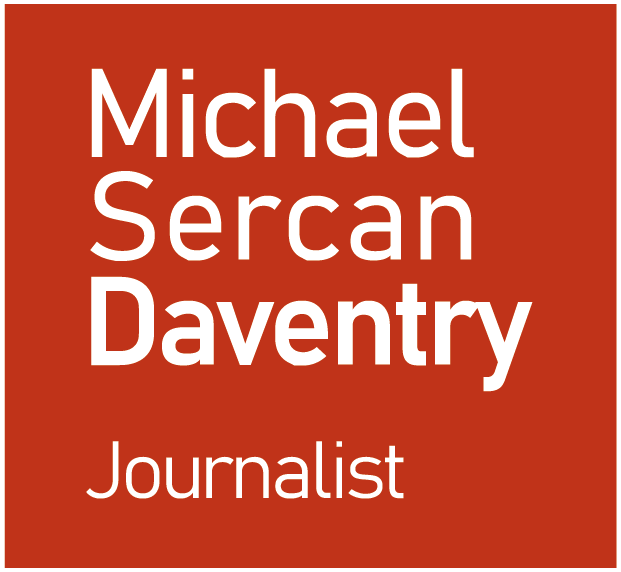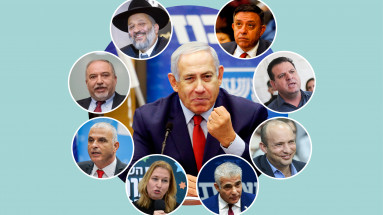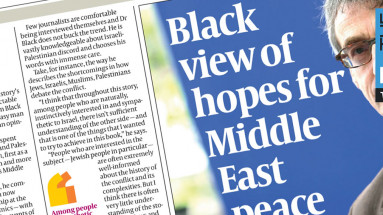
Michael was the foreign editor of the JC, Britain’s oldest and most influential Jewish newspaper, between September 2017 and April 2020. As well as commissioning news stories, features and op-ed pieces, he determined the tone and style of all world news content in the foreign news sections of the weekly print edition and website.
A long, hot summer in the Strait of Hormuz
Caught between belligerent Americans and frantic Europeans, the UK has few attractive options to contain Iranian nuclear ambitions
Palestinian ambassador Husam Zomlot speaks to the Jewish Chronicle
The new chief Palestinian diplomat in the UK discusses antisemitism, engagement terms with Hamas and unwittingly reveals some common ground with Likud party members
Originally published in the Jewish Chronicle, Friday 10 May 2019
It was an hour and a half into our interview that Husam Zomlot’s voice cracked, quite suddenly, with emotion, over a memory of his grandfather’s advice about Jews.
“I was raised by a grandfather. His name is Shehada,” he said.
“My grandfather taught me when I was little. He would take me to places to pray.
“He taught me, ‘Husam, Judaism is the closest to Islam.’
“He taught me to look up to Judaism, that if you want to eat, go and eat with a Jew, because they have the same habits and rituals.”
The most senior Palestinian diplomat in the UK is an affable, courteous man. He speaks animatedly, waving his arms and slapping a nearby coffee table as he punctuates his points. This — and the slight quiver to his lip as he remembers the man who raised him — gives his demeanour a strongly Mediterranean quality.
JC: Election contenders in Israel’s single-horse race
The wait has been long and often excruciating but we
No revolution in Iran – yet – but protests reveal depth of regime split
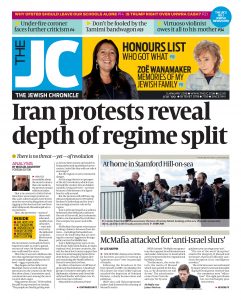 Originally published as a front page splash in the Jewish Chronicle, 5 January 2018
Originally published as a front page splash in the Jewish Chronicle, 5 January 2018
What is remarkable about the unrest in Iran is that, one week on, the protests remain without a leader.
That is in contrast to 2009, the last time there were major protests on this scale, when Iranians were driven onto the streets by allegations of vote rigging in the election that saw President Mahmoud Ahmadinejad win a second term.
Then, the protesters — many of them well-educated, middle-class urbanites — were ushered on by the defeated candidate, Mir-Hossein Mousavi. His movement eventually led Iran’s Supreme Leader to order a partial recount of votes. Mr Ahmadinejad was confirmed the victor.
Author interview: Ian Black’s ‘Enemies and Neighbours’ is an ambitious attempt at even-handedness
When it comes to history’s most intractable conflict, Ian Black is not an easy man to pin to an opinion.
The veteran journalist has spent decades reporting on Israel and Palestine, mostly for the Guardian, first as a correspondent in Jerusalem and then as the newspaper’s Middle East editor. He left the paper in July 2016
Over the past four years, he combined the day job — he is now a senior Fellow at the London School of Economics — with work on a book tracing the events of the past century in that narrow strip of land next to the Mediterranean Sea.
The resulting volume, Enemies and Neighbours: Arabs and Jews in Palestine and Israel, 1917-2017, was published this month and focuses “pretty relentlessly” on Israel and the Palestinians, Dr Black says.
What ideas drive Turkish foreign policy? Think lebensraum
The architect of Turkey’s foreign policy is a pan-Islamist academic who considers Israel a “geopolitical tumour” and believes his country needs lebensraum.
That is according to an analysis of Ahmet Davutoglu’s writing in his former guise as a university professor in the 1990s, before he entered politics as Recep Tayyip Erdogan’s foreign affairs adviser.
Turkey’s next leader? Same man, same double standards
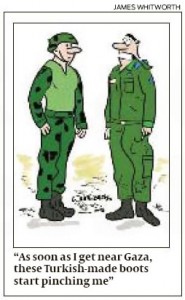 This year will be an excellent one for Turkey’s ties with Israel. The two countries are projected to trade a record $6bn (£3.6bn) in goods and services. A quarter of a million Israelis will visit Turkey, the highest number in five years. And this month, 13 daily Istanbul-Tel Aviv flights will facilitate this burgeoning traffic of business and tourism.
This year will be an excellent one for Turkey’s ties with Israel. The two countries are projected to trade a record $6bn (£3.6bn) in goods and services. A quarter of a million Israelis will visit Turkey, the highest number in five years. And this month, 13 daily Istanbul-Tel Aviv flights will facilitate this burgeoning traffic of business and tourism.
It is a remarkably healthy relationship for two countries that have barely spoken to each other in four years. Turkey withdrew its ambassador to Tel Aviv and expelled Israel’s own envoy following the 2010 Mavi Marmara incident, in which nine people died in an IDF raid on a flotilla of ships bound for blockaded Gaza. Despite an Israeli apology, diplomatic ties have not been restored.
Turkey’s record blemished by its leaders
After 301 people were confirmed dead in Turkey’s single worst mining disaster last month, critics blamed Recep Tayyip Erdoğan. The Turkish prime minister’s business-friendly government had privatised the mine in Soma and its inspectors had given a clean bill of health just weeks before disaster struck.
Mr Erdoğan’s supporters tried to shift the blame elsewhere. Their principal target was the mine’s owning company and its director Alp Gürkan. Among the many personal attacks on Mr Gürkan in the pro-government press, one headline was distinctive: “That boss’s son-in-law is a Jew”. For the pious daily YeniAkit, a board member who changed his name from Mario Asafrana to the more Turkish-sounding “Mahir”was sufficient for a front page splash.
